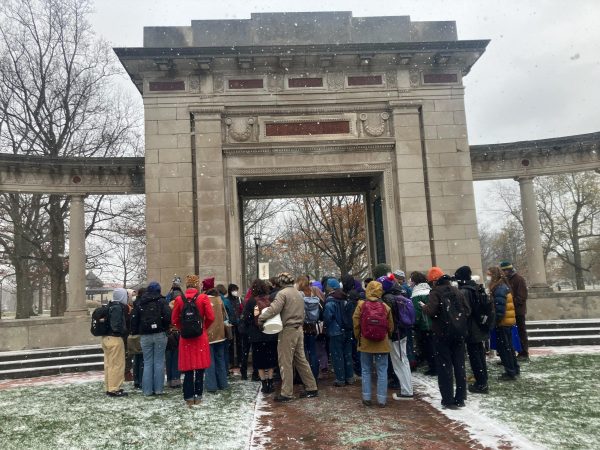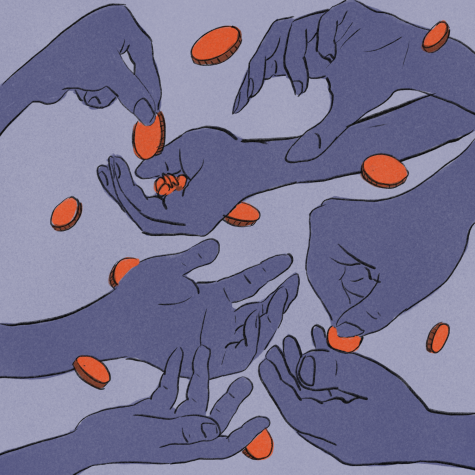On Becoming a Bahá’í
I am a Bahá’í, a member of a world-encompassing community of believers in Bahá’u’lláh and His teachings. If you know me well, you know my faith is essential to who I am and I aim to live so that my life and my faith are one and the same. All of the words I write about my relationship to my faith are a reflection of my own understanding — I certainly don’t have any profound answers.
Everyday, more people in our Oberlin community approach religion with mistrust — comparing the belief in God to living in a fantasy world. I am often hesitant to raise the subject of faith. Oddly enough, in my overwhelmingly white, Christian high school almost everyone knew what being a Bahá’í meant to me, but my nagging insecurities convinced me that my faith was yet another reason for my peers to write me off as the exotic girl who was really only interesting from a distance. As a result of my own self-perception, I tried to drive a wedge between my inner spiritual life and my academic and social life — a division that I am still trying to reconcile.
I should start by clarifying that “being” a Bahá’í is not a passive state — it is a constant striving. I am not a Bahá’í, I am becoming a Bahá’í. It is in everything I breathe, everything I speak; it is the beauty to which I wake up every morning and go to sleep every night.
There is no clergy in the Bahá’í Faith, and we believe that it is the fundamental duty and privilege of every person to independently investigate truth for themselves.
If you asked any member of the Bahá’í community to break down the Faith, they would explain via a set of three principles: the oneness of humanity, the oneness of God, and the oneness of religion. Essentially, Bahá’ís believe in one God, a loving creator who continually sends humanity messengers — from Adam to the Bahá’u’lláh — to guide us according to our capacity at that time in history. Humanity as a collective matures and learns in a spiritual grade school, with different teachers imparting knowledge at every stage of our development. While certain elements of religion change over time, the essential spiritual truths underlying all religious traditions are consistent with one another and build on each other. Bahá’ís believe that the last teacher in a successive line sent for the benefit of our collective humanity is Bahá’u’lláh.
Bahá’u’lláh, translated literally as “the Glory of God,” lived in the mid 19th-century in Iran, where, in 1863, He revealed Himself as the manifestation of God for our current day. The essential goal of His writings is to unite humanity under pillars of justice. Bahá’ís believe that humanity has the capacity to transform its current exploitative materialism, rampant self-destruction, and environmental devastation into a unified society founded upon shared principles of oneness, justice, and equity. We hope to achieve that transformation through our daily lives, community efforts, and service-based careers.
In every corner of the world, Bahá’ís work within our communities to address their exigencies and requirements. I cannot describe what it feels like to walk into a Bahá’í community gathering. It’s feeling entirely at home even among a group of strangers, knowing their true friendship, respect, and love. It’s experiencing unconditional joy and incredible growing pains all at once — like stepping into refreshingly cold water after a day in the sun. My personal aim as a Bahá’í is to replicate that feeling for as many people as I can in my lifetime.
One of my favorite quotes from Bahá’u’lláh is, “Do not be content with showing friendship in words alone, let your heart burn with loving kindness for all who may cross your path.” Still, keeping that fire alive can sometimes be challenging in a space where spirituality and religion are often dismissed. The greatest task in my time at Oberlin hasn’t been from any class or job, but from the constant attempt to maintain coherence in my life between the material, academic, and social life that I lead here and the spiritual, community, and service-based existence that is at the root of who I am.



